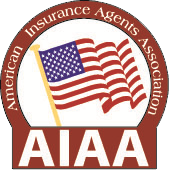Ethics Part III(1.5 Credit Hour) TDI Course No.
Chapter 2:
2.1 Dictionary and Working Definition of Ethics
(Webster says) Ethic(s) is the "discipline dealing with what is good and bad and with moral duty and obligation." "A set of moral principles or values, and the principles of conduct governing an individual or a group." -
(A Working Definition) Ethical is defined "as of or relating to ethics" and simply put is a way to conduct your insurance business in a way that conforms to acceptable professional standards of conduct and moral principles. Agents, adjusters and insurers who consistently exhibit ethical behavior promote harmonious interrelationships within team, provide a great deal of client satisfaction, as well as, personal satisfaction that comes from respecting others and self.
2.2 Responsibility to the public in advertising
- Honest Advertising.
- Honest Sales Presentations
- Clear and Correct Policy Illustrations
- Limited authority for insurer
2.3 Behaviors of a Trusted Fiduciary
- Follows a code of ethics
- Acts with honesty, fairness and good faith in providing service/products
- Follows laws and TDI Regulations
- Describes coverage, explains application process, collects premiums
2.4 Principles of the Insurance Marketplace Standards Association?
- Business conducted with honesty & fairness
- Provides competent & customer-focused sales and service
- Engages in active and fair competition
- Promotes honest interrelationships
2.5 Ethics called Bottom-Line Issue for Entire Insurance Industry
The current investigations of the insurance industry emphasize the need for stricter adherence to ethical market conduct standards, Brian Atchinson, executive director of the Insurance Marketplace Standards Association (IMSA), told the annual meeting of the National Organization of Life and Health Insurance Guaranty Associations (NOLHGA). "The recent spotlight on our industry is a powerful reminder that ethical business practices are more than just the right thing to do," said Atchinson. "Ethics is a bottom-line issue for the insurance industry. "In the months to come, there will be intense scrutiny about the role of market conduct standards and how to best create strong, more efficient consumer protections while recognizing today"s dynamic marketplace realities. The need for rigorous standards of ethical business practices is key to any discussion about the future of market conduct regulation," he said. To attain IMSA qualification, insurance companies must undergo both internal and external reviews and assessments of their policies regarding the marketing, sales and servicing of individually sold life insurance, annuity products and long-term care insurance. Qualified companies must have in place practices and procedures that will alert them to potential problems and prompt self-corrective actions. "We long have said that this approach for other parts of the insurance industry could protect the marketplace and safeguard insurance purchasers. This is truer than ever in light of the current investigations," Atchinson said. A year ago, the Government Accountability Office (GAO) reported that uncoordinated state regulations did not provide adequate protections for consumers, and burdened companies with duplicative and unnecessary costs. Atchinson said that some of those problems may be addressed by the so-called "SMART" Act, pending in the U.S. House Financial Services Committee. The SMART Act cites the importance of a best practices organization such as IMSA whose central mission is to promote high ethical standards in the marketplace, according to Atchinson.
The Model Market Conduct Act developed by state regulators and legislators also should make state insurance regulation more effective and efficient. But Atchinson noted that the model act does not address the issue of an independent, industry regulatory agency to oversee ethical market conduct. IMSA members represent nearly 60 percent overall market share for individually sold life insurance, long-term care insurance, and annuity products. Members commit to maintaining high ethical standards and to being fair, honest, and open in the way they advertise, sell and service their products. The IMSA website is www.IMSAethics.org. (from Insurance Journal article Oct. '04)
 |
 |
